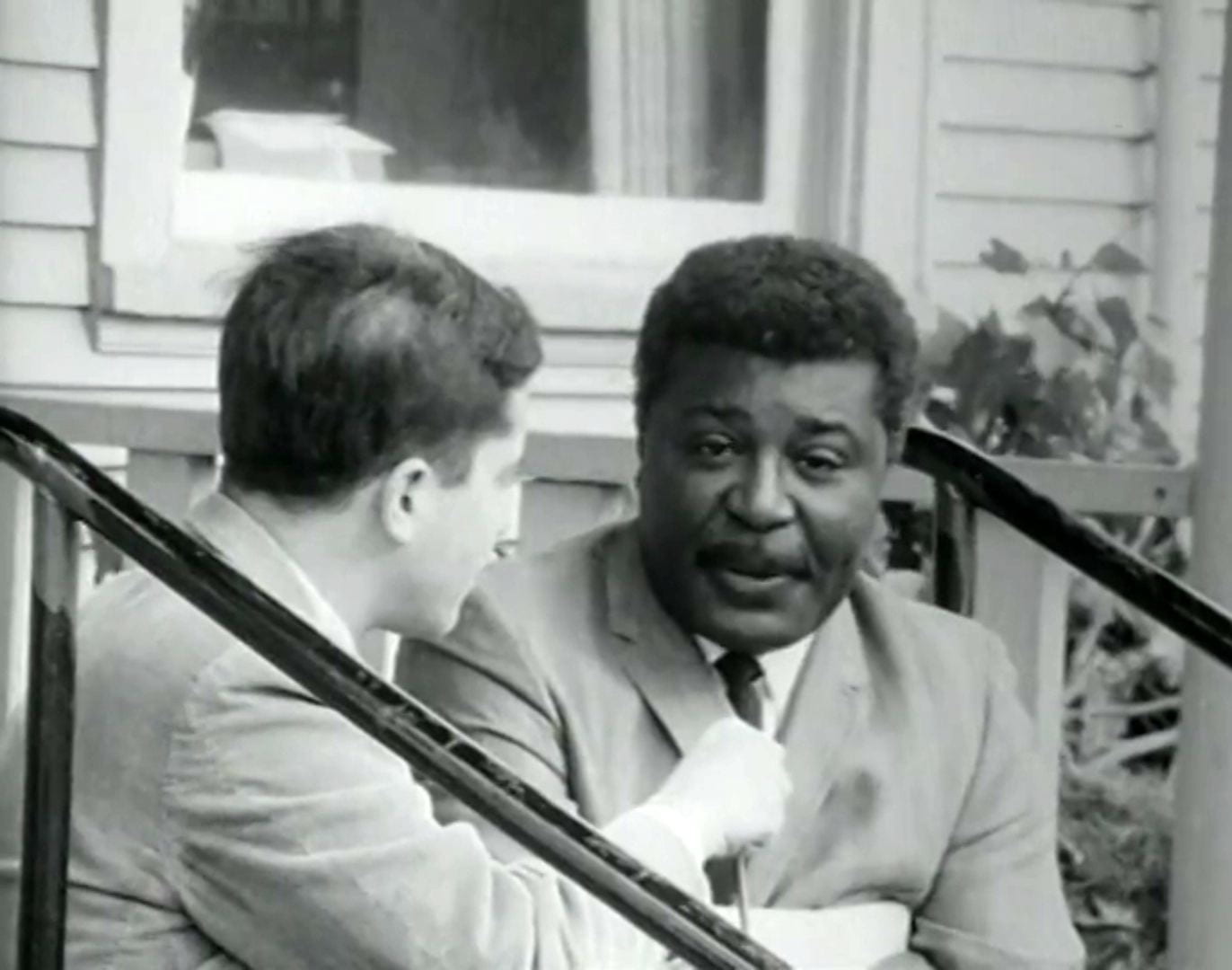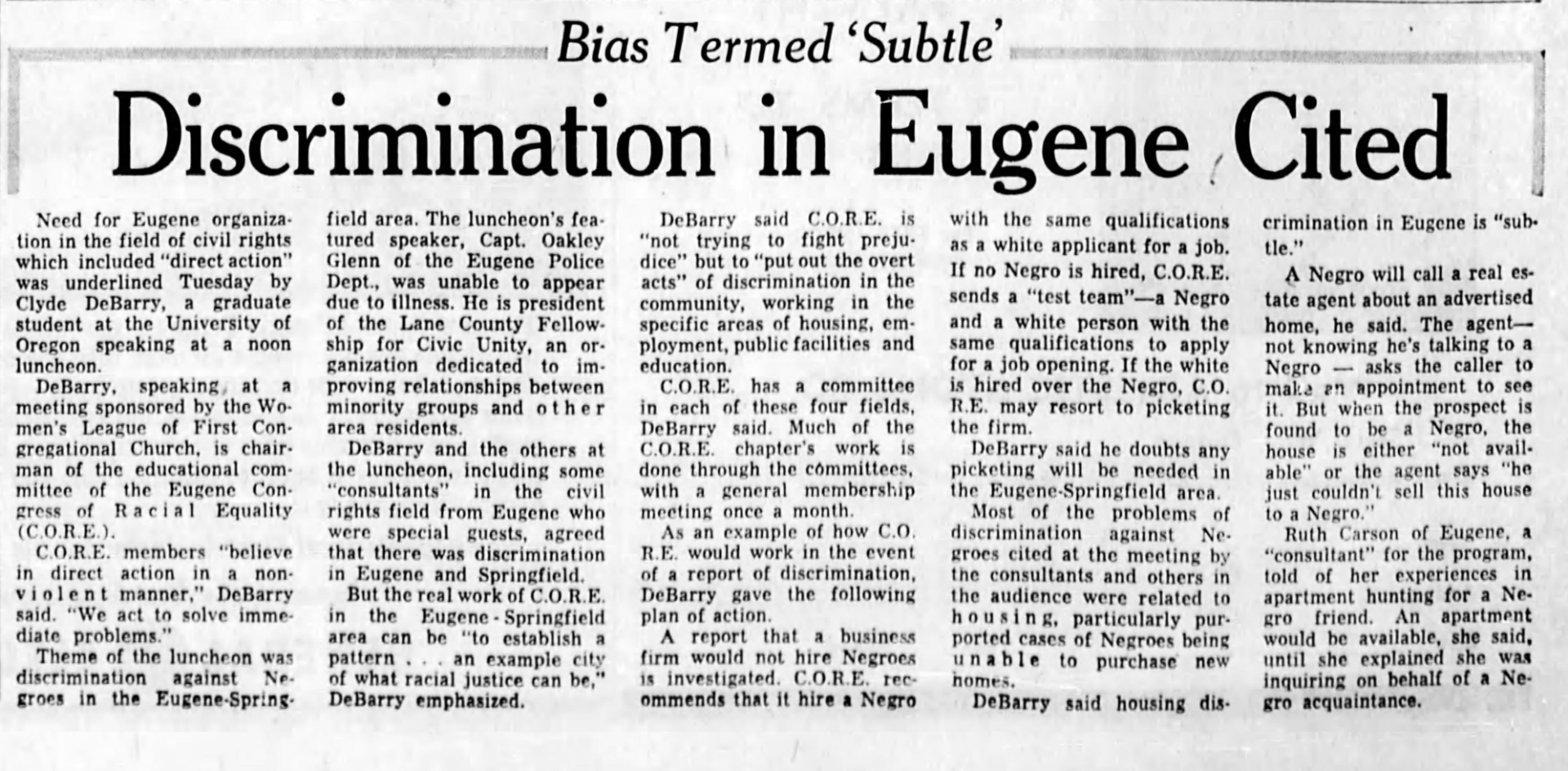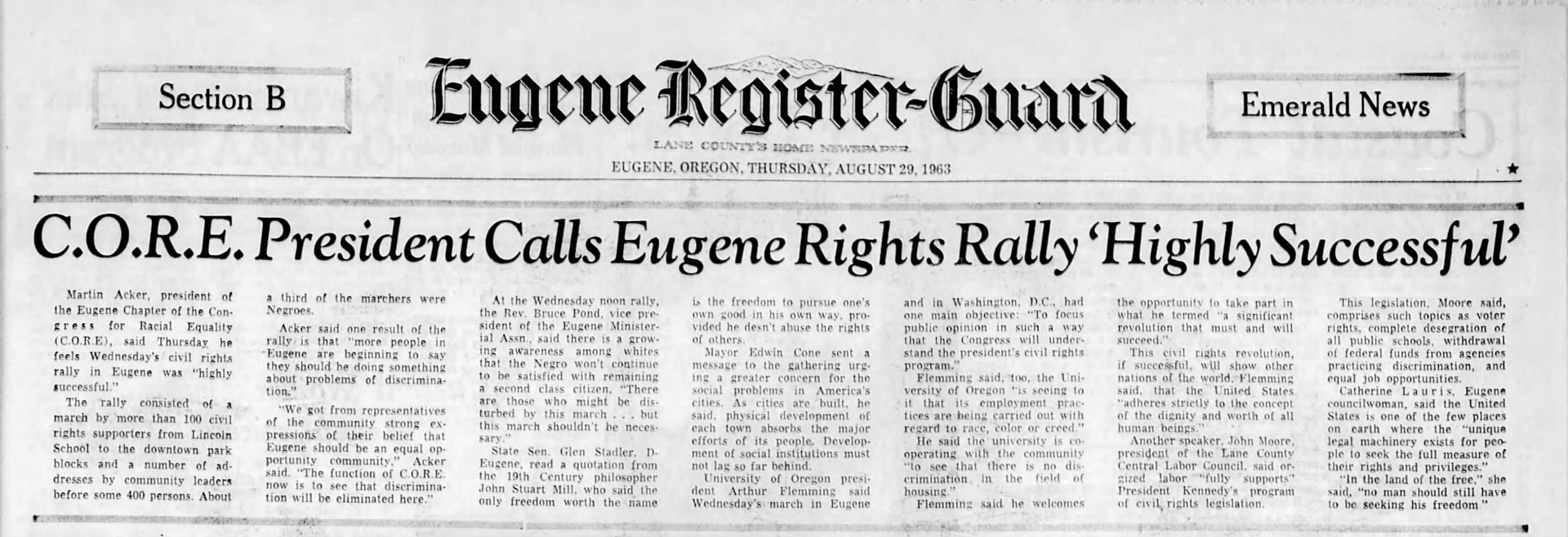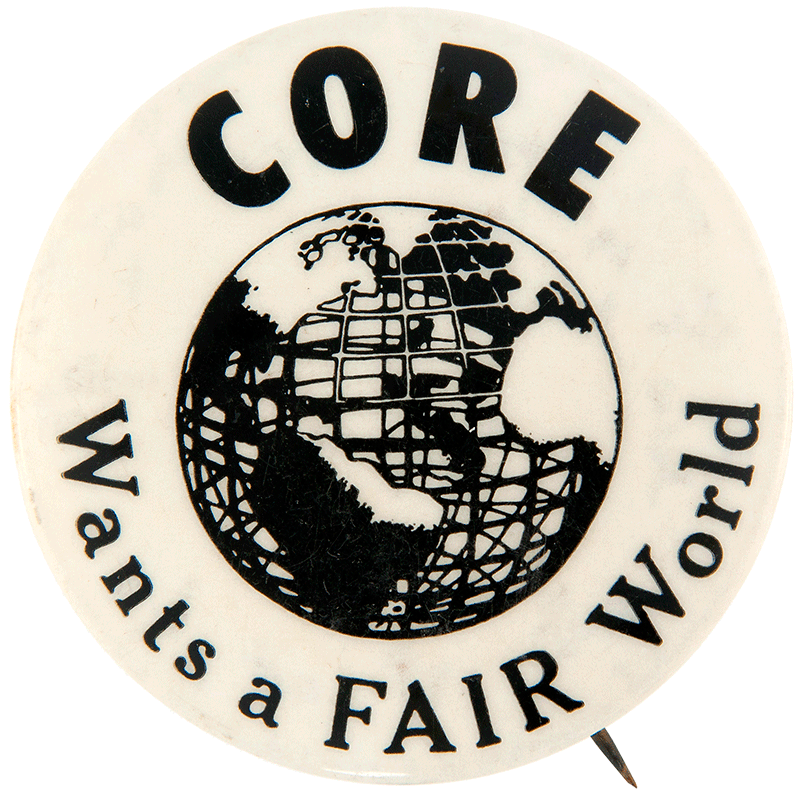We ask only for decent respect and treatment of our Black citizens.
—Clyde DeBerry, CORE President and Director of the University of Oregon
School Desegregation Training and Research Institute, 1967
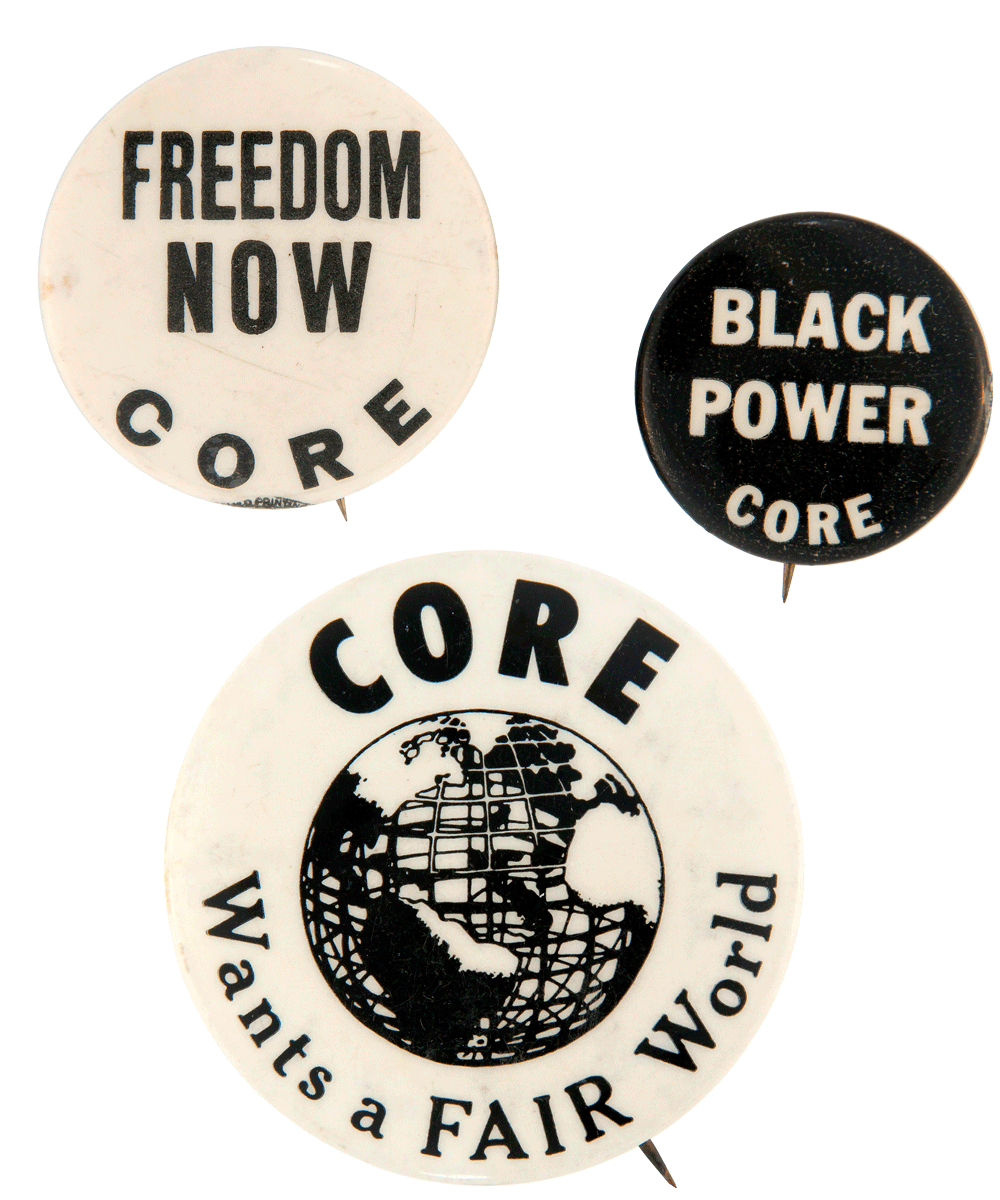
LOCAL ACTION
The establishment of the Eugene chapter of the Congress of Racial Equality (CORE) in 1963 sparked the local civil rights movement. Eugene’s Black community faced widespread discrimination, but the areas of most concern were housing, jobs, and education. CORE members gathered data on incidents of police profiling, demonstrated against racism, and tested job and housing listings for racial discrimination.
There was not a bank in this whole city that would lend a Black man money for a business. I decided I was not going to allow this city to run me out of town. I was going to stick and I was going to make a living someway or another.
—Willie C. Mims
Voices of the Community
Some of Eugene’s earliest Black residents were active in CORE. Mattie Reynolds, Annie D. Mims, Sam Reynolds, Jr., Willie C. Mims, and Lyllye Reynolds-Parker were all members.
What do you remember? What did we forget? Help us tell the story of Eugene’s civil rights era. Share your memories and reflections here.
Submitted responses will be selected and posted here.
No comments yet.
